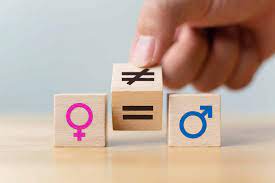Rwanda – A Country with 61 per cent Women Parliamentarians
Rwanda stands out globally with an impressive 61 percent of women in its Parliament, a stark contrast to many other countries. This extraordinary representation of women in Rwanda’s political sphere can be traced back to the country’s tumultuous history.
Historical Roots: Ethnic Conflict and the Genocide
The ethnic tensions between Hutus and Tutsis fueled by colonial rule led to decades of conflict, culminating in the tragic Rwandan genocide in 1994. The aftermath left a predominantly female population due to the large number of men killed during the violence.
Initiating Change: Gender Equality in the Constitution
To address the societal and gender imbalances, Rwanda implemented a transformative gender equality initiative in its 2003 constitution. This initiative introduced quotas, ensuring women held 30 percent of decision-making positions, including 24 seats in the Lower House of Parliament.
Impact of the Genocide on Women
The Rwandan genocide resulted in gender-based violence, but the majority of fatalities were men, leading to a population composed mostly of women. Women faced challenges in accessing property and economic opportunities. In response, Rwanda implemented legal changes and quotas to empower women.
Progress Beyond Politics
Rwanda has made progress in political representation and health, as indicated by the World Economic Forum’s Gender Gap Index. However, challenges remain in areas like employment, economic opportunities, and traditional gender roles.
Ongoing Challenges and Future Hurdles
Despite legal changes, many women in Rwanda still face heavy workloads, threats of violence, and limited access to education. Traditional gender roles persist, and some sections of the population do not fully support gender equality policies.
The Role of Political Climate
Rwanda’s political climate, marked by President Paul Kagame’s long-standing rule, has been criticized for limited dissent. However, it has also been argued that authoritarianism allowed for the implementation of gender equality provisions.
Addressing Barriers for Lasting Progress
To ensure lasting progress, Rwanda must address issues like the limited enforcement of gender equality laws, campaign financing, education, technical skills, and persistent gender stereotypes and patriarchal attitudes, as highlighted by UN Women.
Month: Current Affairs - September, 2023
Category: International / World Current Affairs








